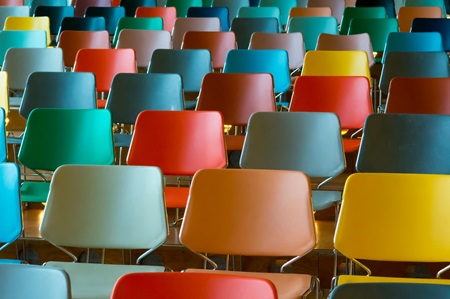Annual SMART Recovery Conference RECAP for 2025
The SMART Recovery 2025 Annual Conference,
Charlotte, NC, April 2-4
By Tom Horvath, PhD
 In summary: SMART is thriving, and recognition of SMART in the recovery and wider world seems to be accelerating. Entire systems of services (e.g., state prison systems, national prison systems, treatment systems) are adopting SMART Recovery meetings.
In summary: SMART is thriving, and recognition of SMART in the recovery and wider world seems to be accelerating. Entire systems of services (e.g., state prison systems, national prison systems, treatment systems) are adopting SMART Recovery meetings.
Part of the purpose of this conference was to celebrate SMART’s growth and to thank the volunteers (our “champions”) who have grown it. SMART Recovery now has approximately 1800 meetings in the US and Canada. The main presentation room only had space on its walls for 20 flags (of the 32) of SMART’s other countries. Worldwide there are nearly 3000 meetings. SMART now has printed materials in 18 languages.
There were about 220 attendees (up 50% from last year), coming from around the US and a few other countries. There were 3 keynote addresses (with internationally and nationally recognized speakers), several other all-conference events, 18 breakout sessions, 2 SMART meetings, and several meals and social events. There were also awards for scientific contribution, service to SMART Recovery, and bringing SMART to diverse populations.
In many of these sessions and the private conversations between them there was deep engagement about questions central to SMART’s functioning and growth: How many styles of meetings could/should we have? How important are meetings for specific groups (e.g., alcohol users, meth users, LGBT, electronic devices, young adults, etc.)? How many meetings should focus on tools for change, and how many on “telling stories” about how our lives are going? What are the essential skills of the meeting facilitator? How do we most efficiently teach those skills? Where are the next most fruitful places to “pitch” SMART? How do we recruit more facilitators (so we can have more meetings)?
We already have general answers to these questions: We need several styles of meetings, meetings for specific groups are valuable but most meetings are open to anyone, most meetings are more discussion than tool based (but almost all meetings have both), the essential facilitator skills including listening well, creating a non-judgmental meeting environment, gently keeping the meeting on track, and saying as little as possible so the participants carry the meeting, and teaching these skills is best accomplished with mentoring and extended practice.
As to pitching SMART, there were many conversations about how volunteers got someone to listen, and accept, adopt, and actively promote SMART. By these efforts collectively SMART keeps growing.
As to recruiting more facilitators, we are looking for breakthrough ideas. My personal hope is that someday facilitating a SMART meeting will become an activity that a noteworthy portion of the population takes up out of a sense of civic duty, just as many already donate blood, donate to charity, pick up litter, help the unhoused, or engage in other volunteer activity.
Our goal remains to have anyone who could benefit from SMART know about it and have it easily accessible. We are a significant way there, with much work left to do.
Next year’s conference will be in Orlando, FL, April 9 and 10, 2026.
Liked this article on the annual SMART Recovery conference? You might also be interested in: Using SMART Recovery as a Free Alternative to Residential Treatment.
